Contrary to what some would have us believe, there is an ongoing war against religion in general and Christianity in particular underway in our country. For years we have seen the surface action. Under the guise of a twisted and corrupted interpretation of the First Amendment, Christianity has gradually been forced from the public square. Christmas displays have been forced from public areas — we’ve seen the Mass of Christ reduced to “Happy Holidays. Churches have been attacked for instructing their congregations on the importance of voting their faith. Prayers at sporting events are suppressed. This strategy of attacking the public trappings of religious faith is merely a prerequisite to attacking the core of the faith as that faith increasingly becomes a focal point of resistance to popular culture, particularly the mainstreaming of sexual perversion and the official degradation of marriage. Philadelphia Archbishop Charles Chaput says:
Catholics need to wake up from the illusion that the America we now live in—not the America of our nostalgia or imagination or best ideals, but the real America we live in here and now—is somehow friendly to our faith. What we’re watching emerge in this country is a new kind of paganism, an atheism with air-conditioning and digital TV. And it is neither tolerant nor morally neutral.
In the Soviet Union considered resistance to communism “anti-social behavior” and was likely to earn you a stint in a psychiatric ward
Called psikhushkas, Soviet psychiatric wards were a place where dissenters could be both confined and treated for their perceived conditions. Psikhushkas soon became an integral part of the larger psychiatric system, in which genuine psychiatric science worked in parallel with the politically imposed version. To a degree, it became part of a two-tiered system in which psychiatry was used as a form of political repression (primarily operating out of the Moscow Institute for Forensic Psychiatry) and a more genuine psychiatry (as practiced in the Leningrad Psychoneurological Institute). Once in full swing, the new system became integrated in hundreds of hospitals across the Soviet Union.
…
The most common of these was a condition called “sluggish schizophrenia,” a psychological disorder that was developed by Andrei Snezhnevsky at the Moscow School of Psychiatry. Snezhnevsky agreed with the Communist Party’s sentiment that citizens who opposed the Soviet regime must be mentally unwell since there could be no other logical rationale why anyone would oppose the world’s greatest sociopolitical system.
The defining of political beliefs as mental illness gave the Soviet state immense power:
In reality, it was a tool to isolate and imprison hundreds or thousands of political prisoners from the rest of society, discredit their ideas, and break them physically and mentally. It was nothing less than torture.
Psychiatry in the United States is no less susceptible to political manipulation. For instance, until 1986 homosexuality was recognized as a mental disease in the Diagnostic and Statistical Manual. Overnight, it stopped being a psychiatric problem. (As an aside, in the early days of America, it was a capital offense. By 1998 it had its own television show. By 2003 it was constitutionally protected behavior. And by 2013, opposition to it was bigotry. But that is a different blog story.)
Even though many would point to the definition of mental disorder in the DSM and say that this is unlikely:
A mental disorder is a syndrome characterized by clinically significant disturbance in an individual’s cognition, emotion regulation, or behavior that reflects a dysfunction in the psychological, biological, or developmental processes underlying mental functioning. Mental disorders are usually associated with significant distress or disability in social, occupational, or other important activities. An expectable or culturally approved response to a common stressor or loss, such as the death of a loved one, is not a mental disorder. Socially deviant behavior (e.g., political, religious, or sexual) and conflicts that are primarily between the individual and society are not mental disorders unless the deviance or conflicts results from a dysfunction in the individual, as described above (American Psychiatric Association, 2013; p. 20).
The outlines of the attack on Christianity using psychiatry are pretty clear.
In his book, The God Delusion, monomaniacal atheist and occasional scientist Richard Dawkins has this to say:
This isn’t new or special-snowflake unique.
A few days ago, in a post on faith healing, American Atheists president Dave Silverman wrote: “We must recognize religion as brainwashing. We must recognize the (hyper) religious as mentally damaged.”
He’s not the first to equate religion with mental illness or “mental damage.” Bill Maher has called religion “a neurological disorder.” Sam Harris wrote in The End of Faith, “it is difficult to imagine a set of beliefs more suggestive of mental illness than those that lie at the heart of many of our religious traditions.” Facebook groups claiming religion is a “mental disorder” or “mental disease” boast hundreds of members, and a list of “7 reasons why religion is a form of mental illness” has been shared on a number of atheist blogs.
There is a strong undercurrent among scientists that views religion as a mental disorder:
Kathleen Taylor, a neurologist at Oxford University, said that recent developments suggest that we will soon be able to treat religious fundamentalism and other forms of ideological beliefs potentially harmful to society as a form of mental illness.
She made the assertion during a talk at the Hay Literary Festival in Wales on Wednesday. She said that radicalizing ideologies may soon be viewed not as being of personal choice or free will but as a category of mental disorder. She said new developments in neuroscience could make it possible to consider extremists as people with mental illness rather than criminals.
Now consider this in The Atlantic titled The Health Effects of Leaving Religion
[Dr. Darrell] Ray has been a psychologist for more than 30 years and founded Recovering From Religion, an organization that connects nonbelievers with therapists and each other. According to Ray, it generally takes depressed deconverts two to three years for their health to bounce back. A few years after leaving their religion, they tend to reestablish a social community and rid themselves of guilt they may have felt over premarital sex, depression over losing God, and anxiety about death and hell.
…
Dr. Marlene Winell, a California psychologist and author of Leaving the Fold, compares leaving religion to post-traumatic stress disorder (PTSD). She even created a term for it: religious trauma syndrome (RTS), which she defines in an article for British Association for Behavioural & Cognitive Psychotherapies as “struggling with leaving an authoritarian, dogmatic religion and coping with the damage of indoctrination.” Not every deconvert goes through RTS, but she writes that like PTSD, the impact of RTS is “long-lasting, with intrusive thoughts, negative emotional states, impaired social functioning, and other problems.” RTS is not recognized by the Diagnostic and Statistical Manual of Mental Disorders, though, and some critics say it is just PTSD, applied to religion.
As we’ve seen with Michelle Obama’s and Michael Bloomberg’s utterly bizarre jihad against foods that they don’t approve of you (not them) eating, it is a short step from declaring an outcome (obesity) harmful and outlawing the perceived cause of the outcome (big sodas, food that isn’t dirt and twigs).
Back to homosexuality and why that will be the likely point of attack. A full frontal assault on religion is probably a bridge too far, so to speak, but an attack on religious practices as a way of attacking religion itself is imminently possible. This is not unheard of in America. Polygamy, a practice infinitely less destructive to society that homosexual “marriage” is outlawed. Jehovah’s Witnesses have seen their strong aversion to blood transfusions (one, by the way I don’t hold) trampled by the courts. Homosexual acts are not compatible with traditional Christianity and traditional Christians are the demographic least likely to ever go along with acknowledging homosexual marriage as a sham cover for immorality. Resistance to homosexual marriage is a current flashpoint. But what would happen if “homophobia” were a psychological disorder. What would happen to the First Amendment if one of the defining features of a religion were pathological. Farfetched? These are only a two of many examples you can find of medical professionals advocating the treatment of “homophobia” as a mental disorder.
Intolerance and psychopathology: toward a general diagnosis for racism, sexism, and homophobia.
Abstract
Racism, sexism, and homophobia do not fit into any current diagnostic category. The authors propose that those who engage in such behaviors display a form of psychopathology deserving of its own category. The common denominator seems to be intolerance. The authors explore the possibility of an intolerant personality disorder, outline likely symptoms, and suggest some possible treatment considerations.
Psychiatry Ponders Whether Extreme Bias Can Be an Illness
Doctors who treat inmates at the California State Prison outside Sacramento concur: They have diagnosed some forms of racist hatred among inmates and administered antipsychotic drugs.
“We treat racism and homophobia as delusional disorders,” said Shama Chaiken, who later became a divisional chief psychologist for the California Department of Corrections, at a meeting of the American Psychiatric Association. “Treatment with antipsychotics does work to reduce these prejudices.”
There are many more examples where they come from. Once “homophobia” becomes a mental condition it is easy to see how you can be ordered into a medical facility and your children can end up in foster care with “normal” families.
Just as homosexuality went from a mental condition to mainstream in 1986, it is just as possible that your aversion to homosexual marriage will one day make you crazy.
These are parlous times for people of faith, but particularly Christians. Muslims and other religions still have that exotic patina that liberals find so endearing, and, of course, when you stone and behead your critics they become much more circumspect. As Robert George said recently:
“Christians, and those rejecting the me-generation liberal dogma of ‘if it feels good do it,’ are no longer tolerable by the intellectual and cultural elite,” says George, 59, director of the James Madison program at Princeton University. Citing the political witch hunt that forced Brendan Eich’s departure as CEO of Mozilla for a small contribution to a conservative political cause, George said politically correct mobs “threaten us with consequences if we refuse to call what is good evil, and what is evil, good. They command us to confirm our thinking to their orthodoxy, or else say nothing at all.”
Yet instead of accepting this liberal cultural dominance, George offers a call to arms with practical advice for the embattled faithful. Encouraging conservatives to model themselves off the early civil rights leaders who clung to noble bedrock free speech principles liberals claim to embrace today, George says “our first and most effective move is to hold these elites to their principles.”
I think George is mistaken in relying upon the very malleable principles of the political and social elite for very much. Those elites are the ones who have embraced the crotch-centric values of modern American society and sought to punish anyone who stands in the way. Rather Archbishop Chaput, in the essay I quoted at the beginning of this story is more likely correct:
Evil talks about tolerance only when it’s weak. When it gains the upper hand, its vanity always requires the destruction of the good and the innocent, because the example of good and innocent lives is an ongoing witness against it. So it always has been. So it always will be.
We are on the cultural glideslope that Chicago Archbishop Francis Cardinal George predicted when he said:
“I expect to die in bed, my successor will die in prison and his successor will die a martyr in the public square. His successor will pick up the shards of a ruined society and slowly help rebuild civilization, as the church has done so often in human history.”
I think Cardinal George is an optimist.
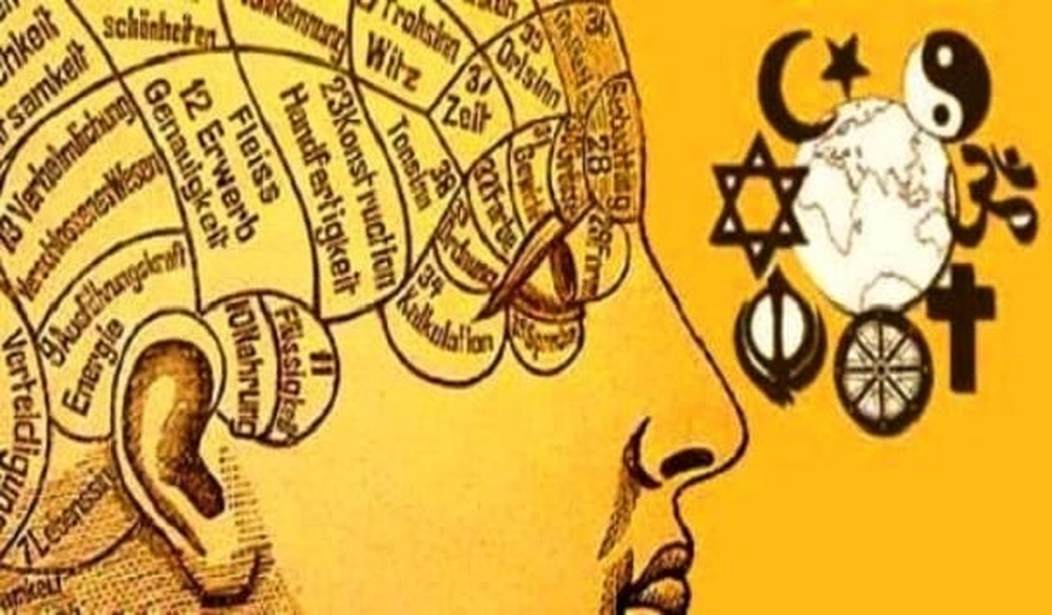



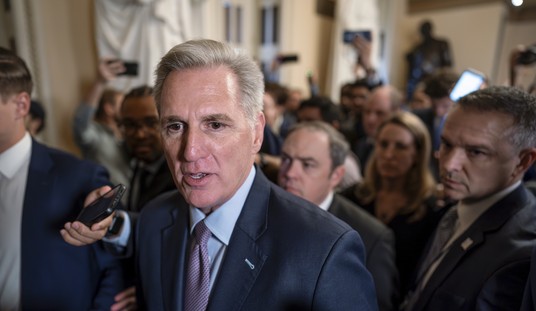

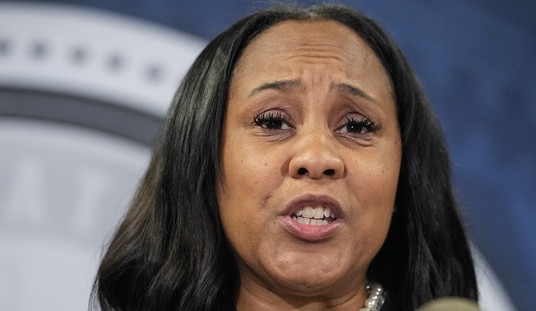
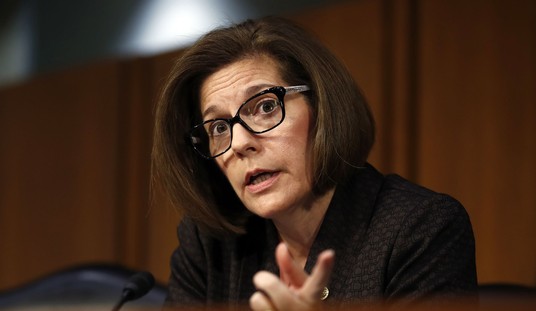
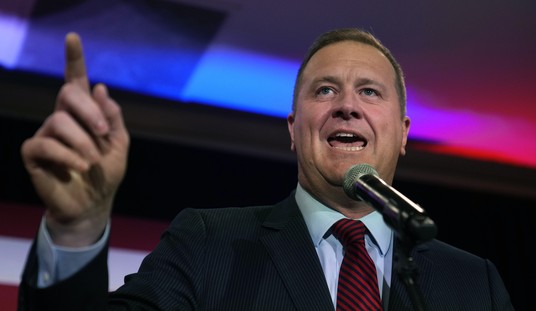


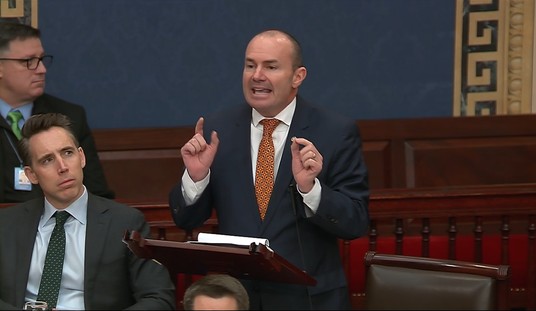
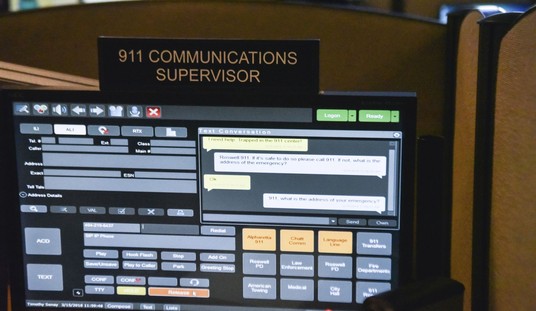
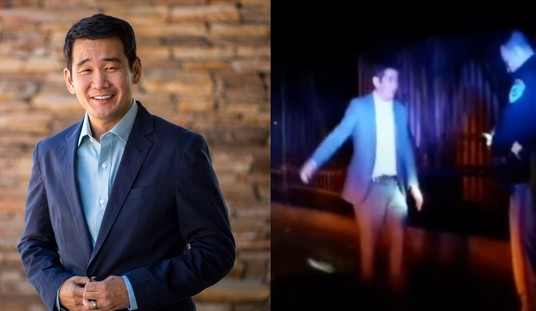


Join the conversation as a VIP Member